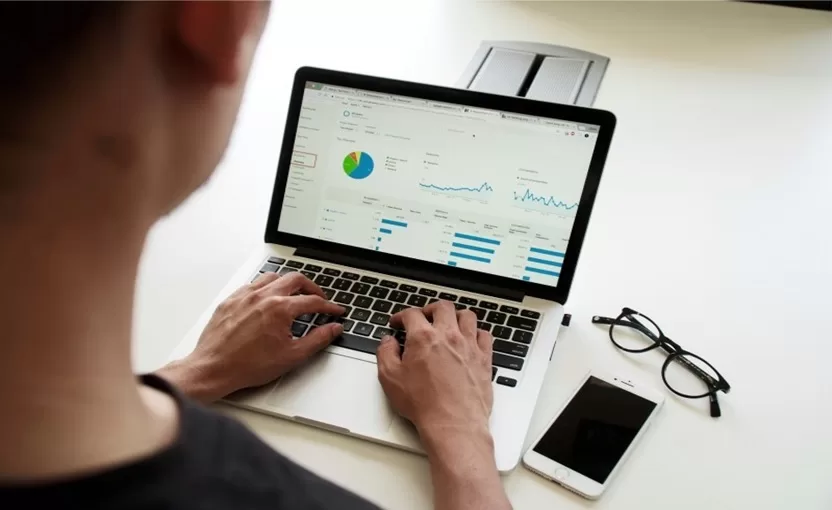Technology
What Data is Collected by Websites: Why and How Businesses Track

For many people, jumping online is part of their everyday lives. Whether we’re connecting with friends and family, seeking out work or even shopping online, exploring the Internet and what it offers is a vital part of the online experience.
Curiously enough, the sites we visit and the things we search often become data points – but to what end? It doesn’t take a Masters in Data Science to know that websites are collecting our data – but understanding how much and how detailed that information is can feel like a secret that’s locked away.
Let’s explore website data tracking – why many businesses do it, what data they can collect, and the incredible things they can do with it. After all, being aware is often the first step to being informed.
Why Do Companies Track Me Online?
The first question you might ask is – why do companies choose to track me online? After all, collecting data points about how one uses a website may not seem helpful, particularly if you’re only operating a blog or a small website.
However, your data can be invaluable to advertisers and other businesses looking to sell you products and services. Let’s say, one day, you decide to purchase a new air conditioner, so you start searching and exploring websites that sell air conditioners. This data can then flag to certain businesses that you may be interested in their products.

You may be surprised to learn that digital advertising is worth hundreds of billions of dollars annually. By understanding what products and niches you may be interested in at a particular point in time, advertisers can get a really good idea of the things you’re likely to respond to, not only saving on advertising spend but also helping to ensure that you see things that are relevant to your interests.
What Sort Of Tracking?
There are two main types of web tracking. Usually, you’ll hear them labelled as first-party and third-party tracking. Each has different uses, but it’s helpful to understand how both types of tracking work!
First-party tracking occurs when the site you visit tracks you. For example, when you’re on a site like Facebook or Instagram, Meta collates data based on what you’re looking at to provide you with a better experience. This can also be helpful from a diagnostic perspective – if something on a website breaks, sometimes collating data can help engineers identify and resolve problems.
Third-party tracking is a little more complex. Also known as cross-site tracking, it occurs when companies track you across multiple websites, such as advertising networks. This third-party tracking enables the vast majority of personalised advertising you see today. By analysing how you use and engage with various websites, ad networks can get a good idea of your interests and what you’re looking for online.
What Types of Data Are Collected?
Companies can collect different types of data depending on the kind of tracking that exists on a website. Tracking can take many forms – from cookies, which collate information on you that a website may store when you access it, to advanced technologies such as tracking pixels or creating a digital fingerprint.
Depending on the level of sophistication, a website can have varying levels of information available on its users. Simple websites with limited tracking, for example, may only be able to identify the number of users who have accessed a page with some information on where they’re from.
More complex tracking methods can help create a unique digital fingerprint – think of it like an online image of who you are and how you’re accessing the Internet. This can be of particular use to advertisers with different advertising formats and designs – specific, device-relevant media can be sent to your device.
What Are Your Rights?
Certain types of digital advertising remain highly controversial in today’s day and age – particularly with methods such as digital fingerprinting. In a world where marketers would love to have as much data as possible, what legal obligations do advertisers have to protect your data?
In recent years, advertisers across the web have come under fire for their shady use of data – selling information en masse to data brokers, who may sell that information to other entities, such as insurance companies.
Unfortunately, privacy legislation is still trying to catch up in the digital age. While some countries, such as the European Union’s General Data Protection Regulation (GDPR), protect web users’ rights, much remains to enhance their privacy and security on the web.
In recent times, government bodies such as the Office of the Australian Information Commissioner have put out advisories on tracking pixels and the privacy obligations that many Australian companies need to consider.
You also have options as an end user if you wish to block personalised advertising on your devices. Some platforms allow you to opt out of personalisation, and some even help block tracking across apps. Additionally, there are other strategies that you can employ, such as regularly clearing your browsing history or limiting what you share online.
Data can be incredible, and for many people online, access to data presents an opportunity for advertisers to personalise and refine our ad experience to promote the things we want when we want them. Hopefully, this article helps you become more informed on how websites use your data – and how you can assert control over it.























































